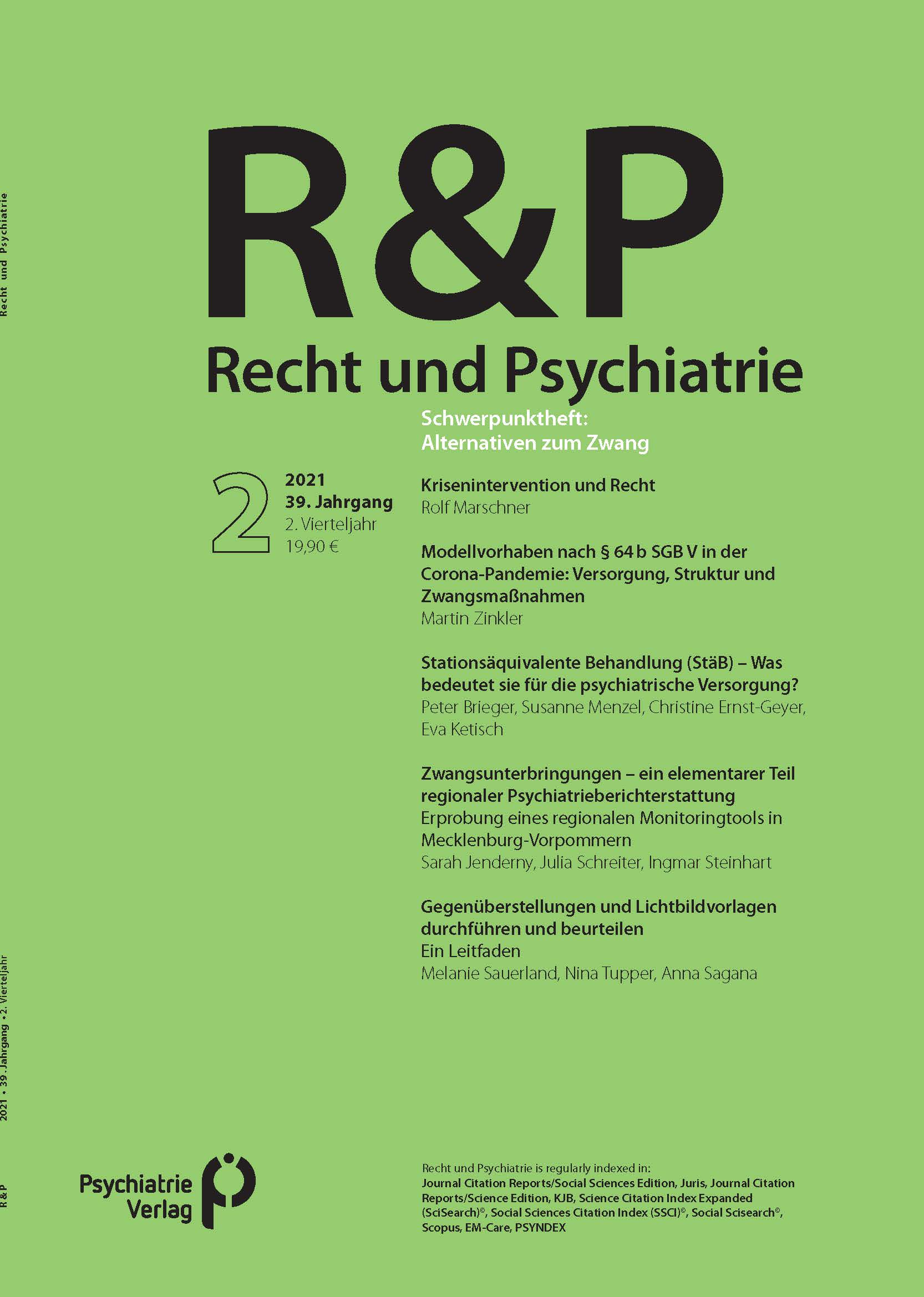Zinkler, M.: Modellvorhaben nach § 64 b SGB V in der Corona-Pandemie: Versorgung, Struktur und Zwangsmaßnahmen – Einzelartikel aus R&P 2/2021
Hintergrund: Die psychiatrische Versorgung in Deutschland wird durch die Corona-Pandemie erschwert, etwa durch die Schließung von Tageskliniken, durch Besuchsverbote in den Kliniken, Restriktionen bei den Gemeindepsychiatrischen Diensten und Ansteckungsketten in gerontopsychiatrischen Stationen.
-
Anwendung von institutionellem Zwang: Zwangsmaßnahmen wurden im Modellvorhaben seltener als in den Vorjahren angewendet, im Coronajahr 2020 jedoch wieder mit ansteigender Tendenz. Die Antwort auf die Frage, ob die häufigere Anwendung von Zwang während der Pandemie auf institutionelle oder externe Faktoren zurückzuführen ist, steht noch aus.
-
Model Region: In this context and exemplified in the psychiatric department of Heidenheim General Hospital, the »regional budget for psychiatry« as a cross-sectoral model project according to Sec. 64b SGB V (Germany’s Code of Social Law) proves to be structurally and financially resilient. The regional budget works as a capitation system in which the provider of psychiatric care (Klinikum Heidenheim) agrees with the health insurance funds on a number of people from a defined catchment area who receive comprehensive inpatient and outpatient psychiatric care.
-
Service description: Flexible treatment settings allow for low bed occupancy, outreach work, greater use of home treatment and more day hospital treatment. These options enable the provision of needsbased care while reducing the risk of infection.
-
Use of coercion: Coercive measures were used less frequently in the model project than in previous years. Yet, during the corona pandemic in 2020 coercion was used more frequently compared to the previous year. Whether this is due to institutional or external factors is still an open question.




